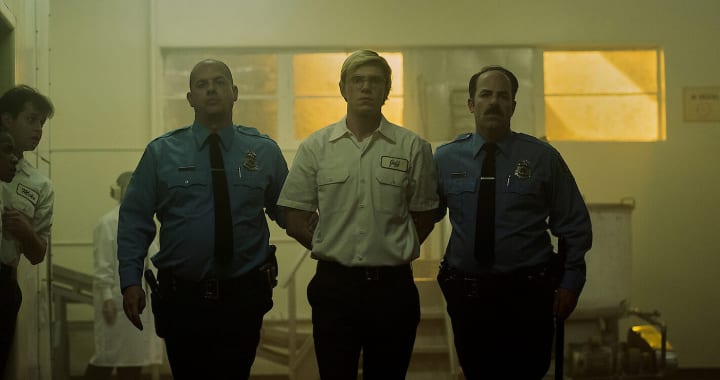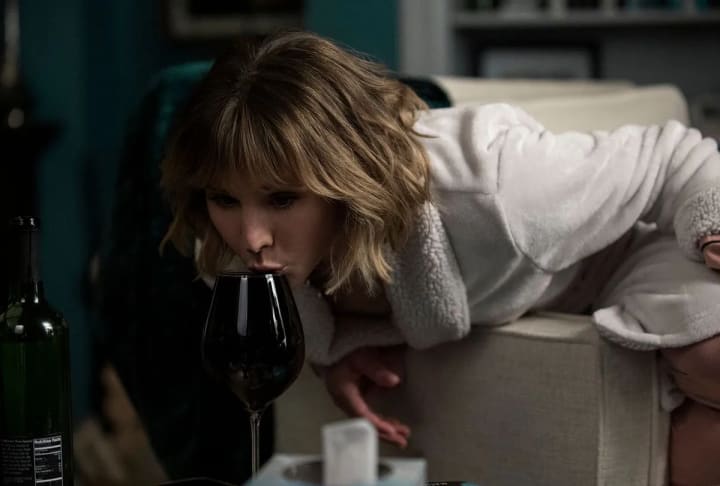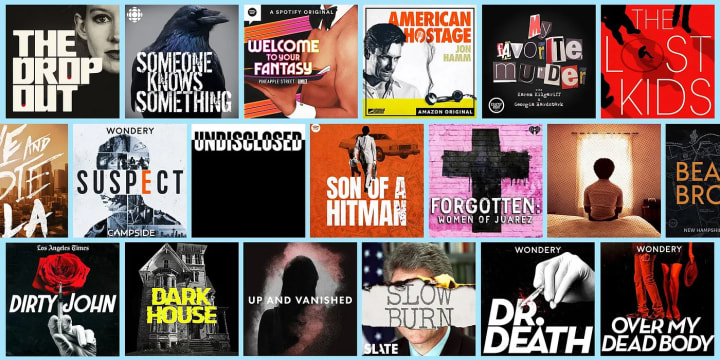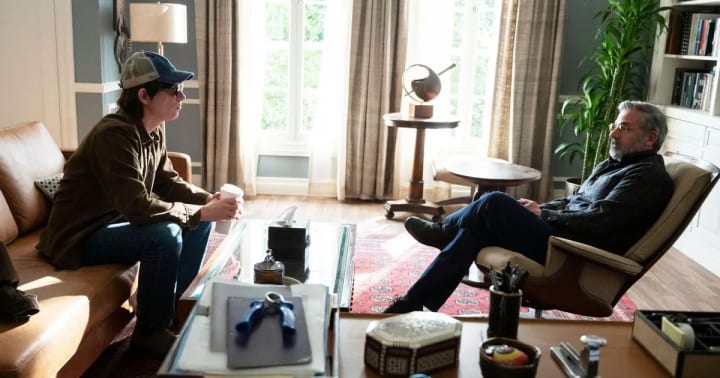Why Are We Obsessed With True Crime?
Unveiling the psychology behind our dark and bloody obsession

True crime has become an incredibly popular genre in recent years. From fictionalized dramas about serial killers to documentaries about cold cases, the darker side of human nature has always held a strange allure that keeps people hooked. But what drives our fascination with true crime?
What compels us to immerse ourselves in stories of violence, tragedy, and the darkest corners of society? In this article, we will dive into the psychology behind our obsession with true crime, and explore the underlying factors that contribute to its enduring appeal.
Fear & Morbid Curiosity
One of the primary reasons for our fascination with true crime is our innate fascination with fear. As human beings, we are wired to be drawn to danger and often times we seek it out in a controlled environment where we can experience it vicariously or on our own terms.
True crime allows us to confront our deepest fears from a safe distance, satisfying our morbid curiosity without exposing ourselves to real-life dangers. In fact, studies show that about 58% of women who consume true crime content do it as a means of education and mentally preparing themselves should a dangerous situation ever occur to them.

As the unpredictable nature of true crime narratives highlight how these attacks can happen at a moments notice, true crime fans are not only intrigued by the most common actions taken, but it also creates a sense of suspense and tension that keeps us engaged and even entertained.
We are especially intrigued by the psychological profiles of criminals who have committed the most atrocities and the strategies used by law enforcement to catch these criminals. Netflix’s library of true crime content such as Dahmer, The John Wayne Gacy Tapes, and Catching Killers are some of the most watched shows on the platform due our naturally morbid curiosities and we find ourselves captivated by the complex interplay between good and evil, right and wrong, and the pursuit of justice.
Empathy & Identification
Another psychological aspect that contributes to our fascination with true crime content is our ability to empathize and identify with the victims, investigators, even the criminals to a certain extent. As social beings, we have an inherent desire to understand the human condition including the capacity and motivation for both good and evil.
While true crime documentaries do a great job highlighting the resilience of survivors and the determination of law enforcement agencies, fictionalized dramas and thrillers such as You, Dexter, and Bates Motel almost glorifies the actions of serial killers by featuring them as the main character of their respective series. This ends up challenging our basic understanding of good and evil, and forces us to question our morality.

By immersing ourselves in true crime stories, we can explore the depths of how these crimes came to be and understand a layer of complexity that we may have not been able to comprehend before. This process allows us to explore our own moral compass, understand the impact of crime on individuals and society as a whole while reflecting on our own ethical values.
Psychological Gratification & Cognitive Engagement
Beyond fear and empathy, the fascination with true crime also stems from the psychological gratification and cognitive engagement it offers. People have an inherent desire for knowledge and understanding, and true crime content often provides a puzzle-like element that challenges our analytical and problem-solving skills as we attempt to piece together the evidence and unravel the mystery.
This is highlighted in hundreds of true crime podcasts, thousands of jokes and sketches featured in sitcoms, and has even served as the premise of television shows and episodes. Shows like Only Murders in the Building and The Woman in the House Across the Street from the Girl in the Window showcases people’s obsession with true crime content by having their protagonist figure out a crime in their neighborhood while trying to avoid tropes found in horror movies.
Despite some over-the-top reveals and cryptic storytelling, true crime narratives present complex moral dilemmas and challenges us to evaluate the actions and motivations of criminals and law enforcement. However, true crime television shows with a near satirical premise also serves as a warning to not involve ourselves in the actual crime itself as there might be dire consequences that we cannot avoid.

Black Mirror’s ‘Loch Henry’ is a perfect example of this, as the episode served as a commentary about society's obsession with true crime content and highlights the consequences of insensitively treating these real traumatic events as a game. By examining these narratives, we can reflect on the nature of good and evil, the factors that contribute to criminal behavior, and the ethical choices people make for the pursuit of justice.
Media Influence & Social Connection
The rise in popularity of true crime can also be attributed to the media landscape and our increasing interconnectedness through technology. The accessibility of true crime content through podcasts, streaming platforms, and social media has allowed for a wider dissemination of these stories.
Social Norms Theory suggests that our interest in true crime content may be driven by a desire to conform to societal expectations. As a result, discussions and debates surrounding true crime cases have become a form of social currency, and has fostered a sense of community among enthusiasts who share a common interest in the genre.

While these kinds of discussions fit in the same realm as those who talk about things that happen on competitive reality shows, the disturbing nature of true crime content makes it a more interesting topic to explore as it tends to spice up people’s conversation.
As the true crime genre continues to provide people a platform to discuss and reflect on ethical issues, societal norms, and the inner functions of the justice system, these discussions can lead to increased awareness about the dangers that surrounds us within our communities.
You Bloody Get It?
Our fascination with true crime is influenced by a complex interplay of psychological and ethical factors. By exploring the darker side of human nature, we seek to confront our own fears, understand the depths of human behavior, and find solace in the pursuit of justice.

While our fascination with true crime may seem morbid to some, it ultimately reflects our deep-rooted curiosity about the human experience and our yearning for knowledge and understanding. By acknowledging and exploring the psychological motivations behind our obsession, we can gain valuable insights into ourselves and the society we live in.
If you liked what you read, be sure to follow for more related content!
About the Creator
Jay Kobayashi
A starving writer from LA who aspires to be plagiarized one day. I like to write about academic pieces that identifies philosophy and psychology in pop culture, and sometimes random fun pieces that interests me or the algorithm!






Comments
There are no comments for this story
Be the first to respond and start the conversation.